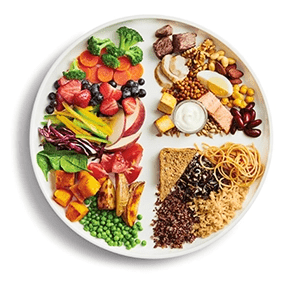CPFF awards two Robert Davidson Fellowships

The CPFF Board of Directors and Medical Advisory Board is pleased to announce two Robert Davidson Fellowships for the 2021-2022 research period. Congratulations to Dr. Kelly Sun, who will begin working in Toronto and Dr. Daniel Marinescu, who will continue the second year of his fellowship working in Vancouver.
“Thanks to the generosity of our donors and sponsors we are able to continue to fund research clinicians,” says CPFF Executive Director Sharon Lee. Not only do our Robert Davidson Fellowships advance our knowledge of pulmonary fibrosis, they help improve access to specialized ILD care across the country, as the individuals pursue their medical and research careers upon completion of the fellowship.
Each of the fellows are respirologists and will spend at least 75 per cent of their time conducting research and the balance of their time seeing patients, as well as teaching and taking part in other work in their clinics and collaborating with specialists across the country.
Congratulations to the 2021-2022 CPFF Robert Davidson Fellows:
Dr. Kelly Sun: Under the supervision of Dr. Shane Shapera at the University of Toronto (U of T), Dr. Sun will care for patients at the Toronto General Hospital ILD clinic. She will also pursue a Master of Science degree, with a concentration in healthcare research and clinical epidemiology at U of T. Her main research proposal will delve into the management of patients with progressive fibrosing ILD (PF-ILD). She will be linking data from the Canadian Registry of Pulmonary Fibrosis (CARE-PF) with data from the Institute of Clinical and Evaluative Sciences (ICES) to validate a health administrative definition of PF-ILD. ICES analyzes data gathered through the routine administration of Ontario’s publicly funded healthcare system. In addition, the study will investigate issues regarding health care utilization, including related hospitalizations and estimated health care costs associated with ILD.
Dr. Daniel Marinescu: Under the supervision of Dr. Chris Ryerson at UBC, Dr. Marinescu will perform his 20 per cent of clinical duties at St. Paul’s Hospital in Vancouver. While pursuing his Master’s in Health Science at UBC, he will be involved in several research studies. His primary project is creating about 1,300 detailed clinical, radiological and histopathological findings across various ILD subtypes in the CARE-PF database. Eventually this rich data will be analyzed for associations with identified genetic risk factors for fibrotic ILD. The work will serve to better understand the biologic basis for ILD, helping to improve diagnosis and inform effective disease management. For more information about Dr. Marinescu’s research to date, please read the next article in this issue.
If you are a patient at one of the clinics where these Fellows are working, be sure to welcome them to our PF community.
The Robert Davidson Fellowship supports a one or two-year fellowship in pulmonary fibrosis in Canada with at least 75 per cent of time protected for research-related activities. The combination of clinical and research activities provides candidates with the opportunity for academic career development that will enable them to become key national and international members of the ILD research community. Candidates will be expected to lead a research project at their training institution, with the goal of also participating in multicentre activities that will establish nationwide connections with other Canadian centres.
Research aims to improve diagnosis and treatment of ILD subtypes

Halfway through his two-year CPFF Robert Davidson Fellowship, Dr. Daniel Marinescu has made significant headway; even through the unprecedented pressures that COVID-19 has placed on those working in respiratory medicine.
Working at the University of British Columbia (UBC), Dr. Marinescu has undertaken a review of about 1,300 local patient cases of various ILD subtypes, with about 600 completed to date. This huge task has involved the systemic re-evaluation of each case by a team of ILD specialists including respirologists, rheumatologists, radiologists, and pathologists, with the goal of documenting in exquisite detail the individual clinical, CT scan, and lung biopsy features leading to each diagnosis.
“It’s a comprehensive look at a multitude of components that lead to a diagnosis of a particular ILD subtype, and how these relate to treatment, outcomes, and eventually even an individual’s underlying genetics,” says Dr. Marinescu. For example, CT scan details include how fibrosis appears, as lines or a haze, as well as the location of fibrosis in the lung, such as the upper or lower regions, among other details. The project has been well-received by ILD researchers across Canada and has extended to include other major centers in addition to UBC, coordinated by Dr. Marinescu.
“This project will create a rich database for researchers and healthcare professionals to better understand how ILD manifests, which should help improve diagnosis and inform new ways of disease classification,” says Dr. Marinescu.
The enhanced data will also enable researchers to investigate associations with genetic variations already identified with familial PF. Adding genetic risk factors to the diagnostic process can enhance accuracy and lead to more personalized, targeted treatment.
Cases included in the review are those of people with IPF, idiopathic non-specific interstitial pneumonia (INSIP), fibrotic hypersensitivity pneumonitis (HP), interstitial pneumonia with autoimmune features (IPAF), and connective tissue disease related ILD (CTD-ILD).
Spending the last year on Zoom calls with multi-disciplinary teams across the country has meant that Dr. Marinescu, and the others involved, have made important research connections. “There is the one positive of this pandemic,” reports Dr. Marinescu, “and that is that we are all more efficient and effective at meeting and working remotely.”
“Working with all of these people, in these times, I’ve seen such dedication,” says Dr. Marinescu. “Everyone really cares and recognizes how important building this kind of data is for future research, and most importantly, for patient care.”
The challenge of doing research during a pandemic caused by a respiratory virus has been an additional strain on busy respirologists. Some teams are a bit behind on the research front as they’ve been dealing with massive outbreaks. “And understandably, much of our time and resources have been focused on COVID-19,” says Dr. Marinescu.
In reviewing these first 600 patient files, Dr. Marinescu has had a couple of personal revelations. “It’s brought me closer, in some ways, to the patients we look after. Each one is an individual, with their own unique story. While some are heartbreaking, others have been quite hopeful,” he says. “And in looking back, it’s remarkable to see the progress we’ve made in the treatments and outcomes of people with ILD over the past decade.
Everyone on this project is grateful to CPFF for continuing to enable researchers like myself to continue to advance our knowledge of PF, so we can see even greater progress in the years ahead.”
Looking ahead, Dr. Marinescu plans to share his findings in various journals and at medical conferences later this year and into 2022. This publication will keep you updated as results are published.
Managing the side-effects of medication through nutrition

Why does nutrition and maintaining a healthy weight matter for people living with pulmonary fibrosis? How can what I eat and how I eat help me deal with medication side-effects? What does it mean to eat well?
Last month members of the Toronto Support Group found the answers to these questions, and others, as they welcomed Sarah Dales, Registered Dietitian in Transplant, Toronto General Hospital, University Health Network and Deepanshi Salwan a nutrition student and Master of Public Health candidate at the University of Toronto to their monthly Zoom meeting. Dales and Salwan shared a presentation with the group on how nutrition can help mitigate the side-effects of medications and then responded to questions. The following is the adapted and edited from their presentation.
First they addressed why nutrition matters. “Nutrition is a key component in helping you to manage your disease and maintain your quality of life,” said Salwan.
Eating well will help give you the energy you need to:
- Breathe
- Fight infections
- Cope
- Maintain or improve weight and strength
- Carry out activities of daily living.
Many ILD patients find it difficult to eat due to the side-effects of the anti-fibrotic medications nintedanib (Ofev) and pirfenidone (Esbriet), which both help slow the progression of fibrosis. Common side-effects of these medications can affect your eating habits and can include: nausea, vomiting, reflux, low appetite, weight loss and diarrhea.
Tips for dealing with nausea
- Try eating smaller, more frequent meals and snacks.
- Try including more plain, easy-to-digest foods, like steamed rice, boiled potatoes, dry cereal, crackers or toast, cream of wheat or low-sodium broth.
- Avoid spicy, greasy, and overly sweet foods and any other foods that worsen nausea
- Try ginger ale, ginger tea or peppermint tea.
- Make sure to include protein sources as you are able. Focus on lean meat/poultry (broiled, boiled or baked), fish and low-fat milk, yogurt, cheese.
- Learn to recognize your nausea triggers, sometimes brought on by food smells. Reduce food smells by eating cold or room temperature foods, opening a window or using a fan, and if possible, staying out of the kitchen when food is being prepared.
- Talk to your health care team about taking anti-nausea medications.
Managing vomiting
- Stop eating or drinking for 30 minutes.
- To stay hydrated, have clear fluids (soup, water, jello, popsicles, juice, flat soda) every 10 to 30 minutes.
- Depending on the severity of vomiting, when reintroducing food, gradually start with starchy foods like rice, boiled noodles or pasta, mashed potatoes, bananas, white bread, oatmeal or cream of wheat.
- Make sure to also add back protein-rich foods, even in small amounts, as you are able.
- Consider introducing dairy foods last.
- Listen to your body. Some people may be able to tolerate more foods than others when experiencing vomiting.
“If you are not able to keep water, food, or pills down, or if there is blood or what looks like coffee grounds in your vomit, contact your health care team right away,” said Salwan. “You should also contact them if you have severe stomach pain or headache or you are weak, dizzy, confused or very drowsy.”
Managing Reflux (heartburn)
- Eat small frequent meals and snacks.
- Eat and drink slowly.
- Limit spicy as well as acidic foods.
- Limit alcohol and caffeine consumption.
- Choose lower-fat foods and cooking methods.
- Wait at least one to two hours after eating before going to bed. Use a “wedge” pillow to elevate your upper body when sleeping.
- Avoid any other food triggers that you identify.
Managing diarrhea
- To prevent dehydration, drink eight to 10 cups of clear fluids each day, avoid beverages with caffeine. You may want to drink an additional cup of fluids for each loose bowel movement.
- To replenish electrolytes (essential minerals), consume things like broth, soup, crackers or pretzels to maintain sodium levels and peeled potatoes, bananas, oranges and juices to maintain potassium levels.
- Consult with your health care team before starting electrolyte beverages like Pedialyte, Gatorade or Powerade
- Avoid: Fried/greasy foods, rich desserts, whole grains, raw vegetables, fruits with a thick peel and nuts/seeds.
- Include: Lower-fat foods, refined grain, oat fiber, cooked vegetables, apple sauce and nut butter.
- Try eating small, frequent meals/snacks, rather than three large meals a day.
- Avoid dairy products, if you find they worsen your diarrhea. You may find that yogurt, hard cheese and buttermilk are OK. Or try lactose-free milk/plant-based beverages.
- Talk to your team about using anti-diarrhea medicines. Imodium helps by slowing digestion and Metamucil helps with both constipation and diarrhea by bulking stools.
Coping with loss of appetite
- Treat food like medicine. Don’t wait until you are hungry to eat. Try to eat on a schedule, by setting alarms or asking someone to remind you to eat.
- Choose your favorite foods and have them at any time of the day.
- Focus on having smaller, more frequent meals during the day.
- Try having your largest meal at the time of day when you are most hungry.
- Keep high calorie and protein-rich snacks on hand such as nuts, nut-butter, high-fat yogurt.
- Consider drinking nutritional supplements, like Ensure or Boost.
- Speak to your health care team about any other potential treatment options.
Overall, maintaining a healthy weight matters. “Being overweight can make breathing more difficult, and increases your risk of other conditions such as diabetes, high blood pressure and heart disease,” said Salwan. “And being underweight can mean decreased energy levels, make you more susceptible to infections and impact your quality of life.” In addition, to be a possible candidate for a lung transplant, your body mass index (BMI), a calculation based on height and weight, should be between 17 and 27, with a maximum of 30.
In general, aim to eat a balanced diet with a variety of foods as often as you can. Check out the Canada Food Guide for tips on healthy eating. “Try to build your plate with one half fruits and vegetables, one-quarter protein and the last quarter with whole grains,” said Salwan.
Overall, how and what you eat can make a difference in dealing with the side-effects of medications and help maintain your quality of life. And, if you have questions, ask your health care team for a consultation with a dietitian to address your unique needs.
You can find the complete presentation, as well as an information sheet on nutrition and prednisone, both provided by the Transplant team at Toronto General Hospital at UHN.
Editor’s note: The information in this article is based on a presentation given in Toronto on May 19, 2021. Our thanks to Sarah Dales, Registered Dietitian in Transplant, Toronto General Hospital, University Health Network and Deepanshi Salwan a nutrition student and Master of Public Health candidate at the University of Toronto.
Hamilton ILD specialist takes up new appointment

People with interstitial lung disease (ILD) have always had a powerful champion in McMaster University’s Dr. Martin Kolb. Kolb is research director at the Firestone Institute for Respiratory Health at McMaster and St. Joseph’s Healthcare Hamilton, as well as division director for respirology at the Department of Medicine. He is also the European Respiratory Journal’s chief editor.
“For CPFF, Dr. Kolb has been a reliable source of expertise as a member of our Medical Advisory Board, an outstanding researcher, an excellent educator and mentor, and most importantly, a caring ILD specialist to his patients,” says Sharon Lee, CPFF’s Executive Director.
CPFF is pleased to congratulate Dr. Kolb as he begins his five-year appointment as the inaugural Jack Gauldie Boehringer Ingelheim Chair in Interstitial Lung Disease (ILD) on July 1, where he will continue his ground-breaking research into ILD. His research will be significantly boosted by a grant from Boehringer Ingelheim (Canada) Ltd. to establish the endowed research chair. The chair has also been funded with a commitment by McMaster University’s Faculty of Health Sciences to match the Boehringer Ingelheim funds.
“It’s a big honour to hold a chair named for my mentor Jack Gauldie, who is the reason I came to Canada in the first place,” said Kolb. “Ultimately, you do something like this for the patients you care for and I want to continue being their advocate and helping them in any way I can.”
Originally from Schweinfurt, Germany, Kolb graduated from the Julius-Maximillian University Würzberg Medical School in 1991 and followed with his residency in clinical and anatomical pathology and general internal medicine at the same school.
Kolb’s partnership with Gauldie began in the mid-1990s at a medical conference in Germany, where Gauldie, a McMaster Distinguished University Professor, gave a lecture on lung diseases.
“Dr. Kolb is certainly one of the world’s best clinician-scientists in pulmonary fibrosis. He can investigate the disease using clinical trials, as well as work with the basic molecular biology. He truly is a man of all seasons,” said Gauldie.
Steve Binch was a leader in our PF Community
 It is with great sadness that we share the news with our PF Community that Stephen Binch passed away on May 17, 2021 after a long journey living with IPF. Steve served as a member of the CPFF Board of Directors for many years and founded the Hamilton Pulmonary Fibrosis Support Group. He also lent his expertise to help other volunteers establish two more Support Groups in Niagara and London, Ontario.
It is with great sadness that we share the news with our PF Community that Stephen Binch passed away on May 17, 2021 after a long journey living with IPF. Steve served as a member of the CPFF Board of Directors for many years and founded the Hamilton Pulmonary Fibrosis Support Group. He also lent his expertise to help other volunteers establish two more Support Groups in Niagara and London, Ontario.
“Steve was a dedicated volunteer with CPFF, especially as an advocate for people living with pulmonary fibrosis and as an advisor to several CPFF support groups in Ontario. Until recently, he also continued to serve as the leader of the Hamilton Support Group. He will be missed,” says Kirk Morrison, Board Chair, CPFF.
With a background in the policing community for more than 30 years, Stephen has served on a number of boards. Prior to being diagnosed with IPF, he was a long-distance cyclist and competitive tournament golfer.
“Steve was an exemplary trooper all along his journey and never gave up – an inspiration for all of us who fight in the battle against IPF.”
Dr. Martin Kolb, Director, Division of Respirology, Firestone Institute for Respiratory Health, St. Joseph’s Healthcare, Hamilton, Ontario.
“Steve has always been a winner, but in the end, with his IPF community surrounding him, he could not beat the disease. Till we meet again my brother, continue to guide and look after us.”
Tim Brady, Hamilton and London Pulmonary Fibrosis Support Groups.
“Steve was pivotal in assisting and advising the late Terry Hardy in the founding of the IPF Support Group of Niagara. Since it’s inception Steve has provided quiet, strong support in many ways including attending some of our meetings with Rosie. I believe that, before the pandemic our group was a dynamic, growing organization in part because of Steve’s influence. We shared ideas openly and I personally benefited from the dialogue. Our Group sends condolences and prayers to Rosie and his family. His passing is a great loss to them as well as the community at large. We will miss him.”
Jack Rapattoni, Niagara Pulmonary Fibrosis Support Group.
Steve was a much-loved husband, father, grandfather, policeman and retiree. He is survived by his loving wife Rose, his sister Lynn Clare, his daughter Tracey Lee, his granddaughter Brookelynn Leanne Sestric, nephew and niece, many cousins and many, many friends. The family has requested donations to the Canadian Pulmonary Fibrosis Foundation (cpff.ca) in lieu of flowers. A Celebration of Steve’s Life will be held when permitted.

Pulmonary Fibrosis Awareness Month is fast approaching. June is the perfect month for you to approach your local town or city council to request the lighting of landmarks, such as clock towers, sports venues, fairgrounds, town halls and city signs during September. Now is also the time to ask your mayor, premier or health minister to issue a town, city or provincial proclamation declaring September as Pulmonary Fibrosis Awareness Month. For more information and sample request letters and proclamations, see the article in our May newsletter.
Also a reminder that there is no issue of Hope Breathes Here in July. Follow us on Facebook and Twitter for updates until our next issue coming on August 11, 2021. News updates may also be sent to you via email as required. Have a lovely summer.


